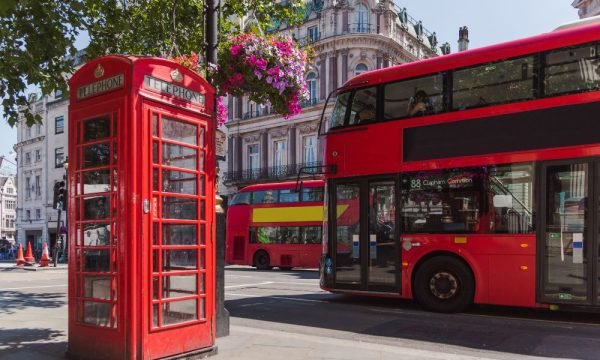Why Choose England?
England’s appeal extends far beyond its historic universities and financial markets. With a GDP of £2.2 trillion and an unemployment rate of 4.3%, the country offers robust economic opportunities alongside rich cultural experiences. The British tech sector has shown particular resilience, with investments reaching £27.4 billion in 2024—the UK’s strongest year for tech funding since 2021. In London’s Tech City, established firms and startups work side by side in converted Victorian warehouses. Meanwhile, cities like Manchester, Birmingham, and Bristol have emerged as powerful tech and cultural hubs, offering alternatives to London’s higher living costs.
Economic Strength, Innovation & Tech Hubs
England’s economy demonstrates remarkable diversity and resilience. Key growth sectors include:
- Fintech (£11.6B investment in 2024)
- Artificial Intelligence
- Green Technology
- Digital Health Solutions
Innovation Hubs Beyond London
While London remains the crown jewel of England’s tech scene, several cities have become powerful innovation centers:
- Manchester: “The Northern Powerhouse” attracted £5.6 billion in tech investment in 2024, specializing in e-commerce, digital health, gaming, and advanced manufacturing.
- Birmingham: Over 25,000 tech jobs created in 2024, £2.3 billion in tech investment, focus on automotive tech and AI, strong university partnerships.
Digital Infrastructure and Smart City Initiatives
England’s digital landscape has evolved rapidly (Tech Nation 2025):
- AI-powered traffic management (-23% congestion)
- Smart energy grids (45% coverage)
- 5G in 98% of urban areas
- 82% of residents use digital public services
Manchester Digital Quarter: £2B+ investment, 10,000+ tech companies, Europe’s largest media production facility, advanced AI and digital health hubs
Transportation and Infrastructure
England’s transport network has seen £96 billion in rail improvements through 2025.
- Rail Network: HS2 development, digital signaling, new electric routes, integrated smart ticketing
- Urban Transport: Elizabeth Line, 270 Underground stations, 9,000+ buses, extensive cycle network
- Regional Investments: Manchester Metrolink, Birmingham Clean Air Zone, Leeds sustainable plan, Bristol mass transit
Property and Housing Market
The UK property market stabilized in 2025. According to Rightmove:
Buying Property
- London (avg. prices):
- Central: £850,000-£1.2M
- Greater London: £550,000-£750,000
- Commuter belt: £400,000-£600,000
- Regional Cities:
- Manchester: £280,000
- Birmingham: £250,000
- Bristol: £350,000
Rental Market Trends
- Enhanced tenant rights
- Abolition of no-fault evictions
- Mandatory rental property registration
- Improved deposit protection (Renters Reform Bill 2024)
Cost of Living 2025
Costs vary across England. According to the ONS, here’s what to expect in London (Zones 1-2, monthly):
- Studio apartment: £1,500-2,000
- 1-bedroom flat: £1,800-2,500
- 2-bedroom flat: £2,400-3,500
- Council tax: £130-200
- Utilities: £150-200
- Internet: £25-35
Immigration and Visa Requirements for 2025
Post-Brexit, England uses a points-based immigration system prioritizing skilled workers and entrepreneurs.
Skilled Worker Visa
- Job offer from approved sponsor
- Skill level: RQF3 or above
- Salary threshold: £26,200 (2025)
- English language proficiency
- Processing time: 3 weeks
Global Talent Visa
For exceptional talent in:
- Digital technology
- Sciences
- Arts and culture
- Academia & Research
No job offer required, but endorsement from recognized bodies is needed.
Path to British Citizenship
The route to citizenship has evolved post-Brexit (Home Office 2025):
- Residence: 5 years (settled status), 3 years (spouse), 6 years (skilled worker)
- Requirements: Life in the UK test (75% pass), B1 English, good character, £1,580 fee
Healthcare System (NHS & Private)
The National Health Service (NHS), established in 1948, is one of the world’s largest publicly funded healthcare systems. The 2024 Commonwealth Fund ranks the NHS 5th globally for healthcare quality and accessibility.
NHS Coverage and Services
The NHS provides comprehensive coverage to all legal residents, including:
- GP services
- Emergency care
- Maternity services
- Mental health support
- Prescriptions (£9.65 per item in 2025)
Recent Developments:
- Virtual GP consultations (38–45% of appointments)
- Electronic prescriptions
- NHS App (30 million users)
- AI-powered diagnostic tools
2025 NHS stats:
- 89% patient satisfaction
- 8 days avg. GP wait
- 18 min emergency response
- 45% digital consultation adoption
Private Healthcare Options
Private healthcare has seen a 23–28% increase in uptake since 2023. Monthly premiums average:
- Individual: £45-75
- Family: £120-200
- Comprehensive: £85-300
Education System & International Students
England’s education system continues to attract international students, with UCAS reporting a 12% increase in international applications for 2024/25.
Top Universities and Rankings
- University of Oxford: #1 (QS 2025), 45% international students, £850M research funding/year
- University of Cambridge: #2 (QS 2025), top research output, 1,500+ industry partnerships
- Imperial College London: #6 (QS 2025), STEM focus, £600M research grants/year
International Recognition:
- 4 universities in global top 10
- 18 in European top 50
- 85% international student satisfaction
- £25B contribution to UK economy
Tuition & Living Costs (2025/26):
- UK students: £9,250/year
- International: £20,000-45,000 (UG), £22,000-35,000 (PG)
- Living (London): £15,000-18,000
- Living (other cities): £12,000-15,000
- Russell Group premium: +15-20%
Innovation in Learning:
Hybrid models in 90% of universities, AI-assisted learning, VR labs, and industry-integrated curricula
Banking and Finance
London’s financial sector remains robust post-Brexit, employing over 550,000 people in 2024.
Major Banks for Expatriates
- HSBC Expat: Multi-currency accounts, international mortgages, wealth management
- Barclays International: Premier banking (from £75,000), global transfers, property services
Digital Banks
- Revolut: 15M UK users
- Monzo: Fast setup
- Wise: International transfers
Account requirements: Proof of address, valid ID/passport, visa/residence permit, minimum deposit varies
Cultural Integration and Daily Life
Living in England means understanding its unique social fabric. ONS surveys show 82% of expatriates integrate within their first year, thanks to England’s multicultural nature.
British Work Culture
- 65% of office workers follow hybrid arrangements
- Standard hours: 37.5-40/week
- 28 days annual leave (inc. bank holidays)
- Growing focus on mental health
Social Integration
British social life centers on key customs:
- Pub Culture: Craft beer, gastro-pubs, quiz nights, community events
- Sports & Recreation: Football (national passion), cricket, padel tennis, outdoor activities
Practical Checklist to Move
- Set up job interviews
- Research council tax bands
1 Month Before:
- Set up UK bank account
- Arrange utilities
- Register with GP
- Plan transportation
Looking Ahead: England in 2025 and Beyond
The Digital Britain 2025 initiative promises:
- Northern Powerhouse Rail expansion
- Smart city initiatives
- 6G network trials
- Accelerated green energy transition
Economic forecasts:
- 2.8% GDP growth (2025)
- Tech sector expansion: 15%
- Green jobs: +25%
- Financial services innovation
Expat Challenges & Solutions in England 2025
Moving to England presents unique challenges that differ significantly from other European destinations. Based on recent surveys from the UK Home Office and expatriate feedback, here’s a comprehensive guide to common challenges and their solutions:
Weather Adaptation
According to the Met Office, England’s weather can be particularly challenging for newcomers, with:
- 156.2 average rainy days per year
- Frequent weather changes within a single day
- Limited daylight hours in winter
Solutions:
- Invest in quality waterproof clothing
- Use weather apps with hourly forecasts
- Plan indoor and outdoor activity alternatives
- Consider light therapy lamps for winter months
Cultural Integration
The British Council reports that 72% of expatriates initially struggle with understanding British social norms and subtle communication styles.
Key Challenges:
- Understanding British humor and sarcasm
- Mastering social queuing etiquette
- Navigating pub culture and rounds system
- Interpreting indirect communication
Solutions:
- Join local social clubs and meetup groups
- Participate in community events
- Take British culture orientation courses
- Connect with other expats through organizations like InterNations
Housing Market Navigation
The UK’s competitive housing market presents significant challenges:
Common Issues:
- High rental deposits (typically 5-6 weeks’ rent)
- Extensive reference requirements
- Competitive viewing schedules
- Understanding council tax bands
Solutions:
- Work with reputable letting agents
- Prepare documentation in advance
- Consider temporary accommodation initially
- Use government-approved deposit protection schemes
Healthcare System
While the NHS provides universal coverage, navigating the system can be challenging:
Main Challenges:
- GP registration processes
- Understanding referral systems
- Waiting times for specialists
- Prescription charges
Solutions:
- Register with GP immediately upon arrival
- Consider private health insurance for faster access
- Use NHS online services and apps
- Learn about prescription prepayment options
Fun Facts About England
Historical Quirks
- The Queen owns all unmarked swans in open water
- Big Ben refers to the bell, not the tower
- The London Underground is the oldest subway globally
- World’s oldest sandwich shop (est. 1762) still operates in London
Modern England
- More languages are spoken in London than in any other city
- England produces more cheese varieties than France
- The British Museum has over 8 million objects
- Manchester invented the modern computer



